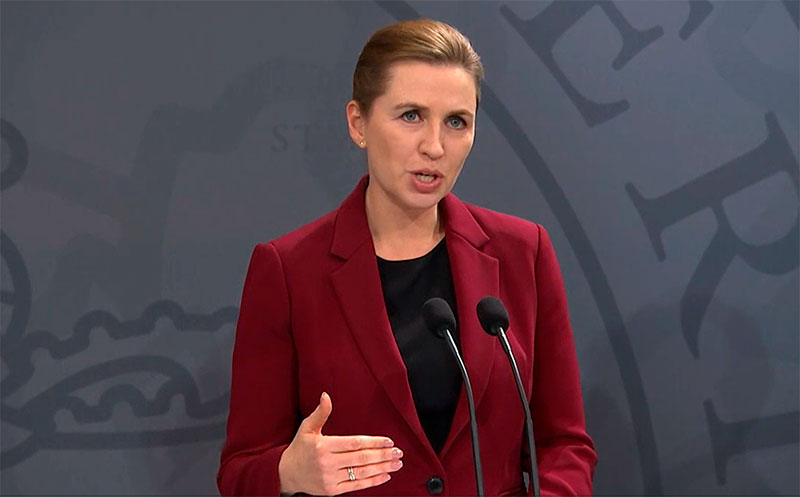However, the issue of the youngest school children remains open.
The restrictions that large sections of society are subject to to limit coronavirus infection will be extended until February 28th. This was stated by Prime Minister Mette Frederiksen at a press conference on Thursday evening.
– It is unfortunately necessary to extend the closure of Denmark by three weeks. That is, through February 28th.
Already during the afternoon, several sources confirmed to DR News that the restrictions will be extended to apply for the rest of the winter.
The parties in the Folketing were informed of this at a meeting with Minister of Health Magnus Heunicke (S) and Minister of Justice Nick Hækkerup (S) on Thursday.
– The government has decided to extend the restrictions until 28 February, says the Liberal Party’s health spokesman, Martin Geertsen, who was present at the meeting.
He says the Liberal Party takes note of the decision to extend the restrictions.
– The government bases it on some health professional reasons, and we take note of that, he says.
The device list also backs up in several weeks with restrictions .
– We are all impatient in terms of getting opened up as much as possible. But these are some crucial weeks we are going into where we need to see if the British mutation spreads. Therefore, I think there is a real assessment that we will have to maintain the restrictions until March 1, says the party’s health spokesman, Peder Hvelplund.
Must count on school students
The restrictions, which will be extended until the end of February, include that stores must remain closed. Hairdressers and other liberal professions are also closed. Restaurants and cafes may only serve take away. And the assembly ban will continue to be on five people.
Students, students in secondary education and the oldest students in primary school will also continue to be sent home.
You can read more about the restrictions in the link below:
However, it is still possible for the youngest school children from 0th to 4th grade to go to school before 28 February. That is what an expert group must now count on.
– We see dissatisfaction in children and families who are under severe pressure. We have said that the little ones should return as soon as possible, unless there is heavy health professional evidence that they should not. The government is sitting and counting on this right now, says Martin Geertsen.
The device list looks forward to getting those calculations.
– This is where the risk of infection is least, and this is also where there is the most dissatisfaction. So to the extent possible, we need to do it. Now we must have examined whether it is possible to do. There must be certain evidence that it does not increase the risk of infection, but to the extent possible, it must be possible to do so, says Peder Hvelplund.
DF: Try reopening in pockets
Kristian Thulesen-Dahl, chairman of the Danish People’s Party, is annoyed that the government is not starting to open up more. He thinks it should be possible to do it in smaller pockets. For example, with school children.
– We need to open up in a corona-responsible way. We have to open pockets where you can take turns coming back to school. These are both small and large children. Due to the young people’s state of mind, you have to make models so that they come back alternately, says Kristian Thulesen Dahl.
He calls for a similar gradual opening in the retail space, where retail is closed while grocery stores can stay open.
– We think it is strange that people can flock to Bilka, while the small clothing store, which only has two or three customers at a time, is forcibly closed. There one should look at whether one could open up some of those stores. One can also do regionally in some of the municipalities where the infection pressure is lowest. You have to start that process with a piecemeal reopening, says Kristian Thulesen Dahl.



